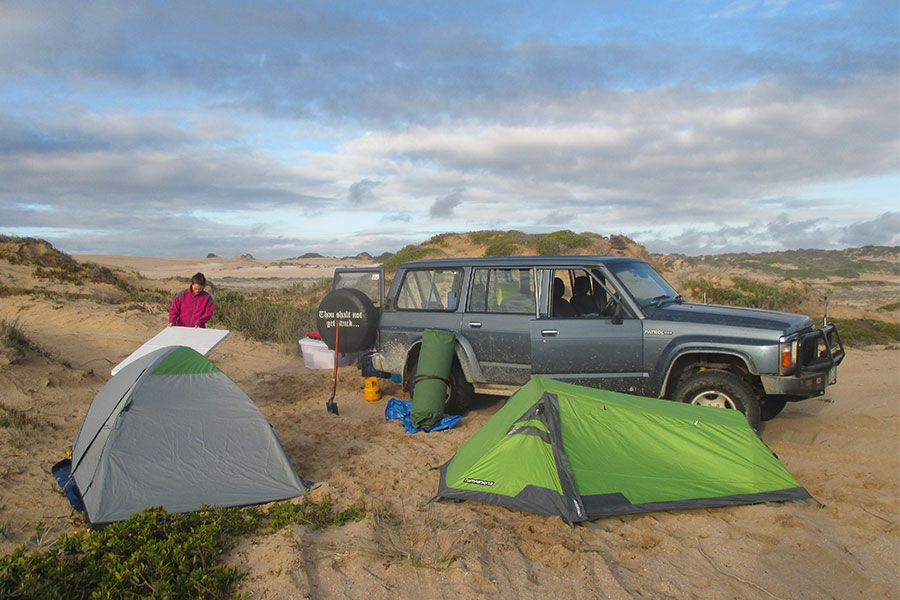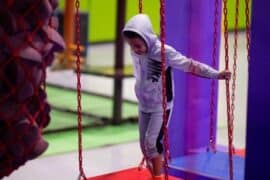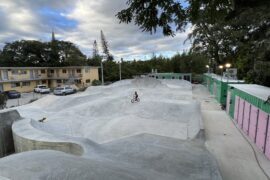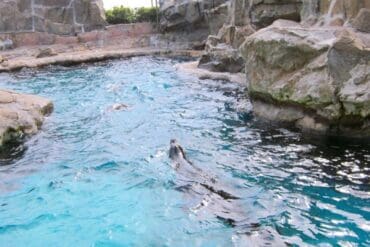Embark on a Memorable Family Adventure: Camping at Coorong National Park
Hey there, awesome families out there! Are you ready to dive into the blissful embrace of nature and create cherished memories with your loved ones? The Coorong National Park is calling your name, and it’s time to answer the call with the ultimate camping trip. Not sure where to start? No worries! Our guide has got you covered with all the essentials for an epic family camping experience at one of South Australia’s natural treasures!
Why Coorong National Park Is a Camping Wonderland for Families
First things first, let’s paint a picture of what makes Coorong National Park a must-visit destination for families looking to camp under the stars:
- Natural Beauty: Coorong’s landscape is truly unique, boasting a serene mix of long, shallow saltwater lagoons, gorgeous coastal dunes, and an abundance of wildlife.
- Outdoor Activities: From bird watching and fishing to kayaking and hiking, there’s no shortage of fun outdoor activities to keep everyone from toddlers to teens entertained and connected to the great outdoors.
- Family-friendly Amenities: Various campgrounds within the park offer facilities like toilets and picnic areas to ensure a comfortable and convenient stay for families of all shapes and sizes.
Picking the Perfect Campsite for Your Family
Coorong National Park has several campgrounds that cater to different preferences and needs. When selecting the perfect spot, consider the following points:
- Access to Facilities: Some sites have more amenities than others, so think about how important showers and flushing toilets are for your family’s comfort.
- Proximity to Activities: If you’re eager to indulge in specific park activities, choose a campground that makes those excursions easier.
- Privacy and Space: Want a secluded area where the kids can play freely, or would you prefer being closer to other campers for a sense of community? There are options for both.
- Bookings: During peak seasons, it’s wise to book your site in advance, ensuring you secure the ideal spot for your family outing.
To start your search, here are some popular campgrounds loved by families:
- The Parnka Point Campground: Ideal for families looking for a quiet retreat with easy access to calm waters perfect for paddling and fishing.
- Loop Road Campgrounds: With multiple sites along Loop Road, you can find the right balance between privacy and proximity to nature trails.
- 42 Mile Crossing: For the adventurous family that’s ready to explore the rugged dunes and nearby ocean beach.
Tips for a Stress-Free Camping Experience with Kids
Now let’s talk about how to make your camping adventure as enjoyable and stress-free as possible:
- Pack Smart: Create a checklist of essentials beforehand, including food, water, first aid, and games to keep the kids busy.
- Prepare for the Weather: Coorong’s climate can be unpredictable. Pack layers and waterproof gear to ensure comfort, rain or shine.
- Engage the Kids: Involve your children in the trip planning and campsite setup. Assigning age-appropriate tasks can make them feel included and teach them valuable skills.
- Focus on Safety: Educate your kids about potential hazards such as wildlife and open water. Always have a responsible adult around to supervise.
With all these tips in mind, you are nearly ready to set out on your unforgettable camping journey at Coorong National Park. So pack up your tent, grab your marshmallows, and prepare for an adventure that your family will talk about for years to come.

5 Things Parents Should Know When Preparing for Coorong National Park Camping
As you pack your bags and plan for an exciting camping adventure, here are five essential things to keep in mind:
- Know the Wildlife: Coorong National Park is home to a diverse array of wildlife, including many bird species, such as the iconic pelican, and other animals like emus and kangaroos. Familiarize yourself and the children with local wildlife and the importance of maintaining a safe distance. Remember to pack binoculars for an even closer look!
- Understand the Park Regulations: The national park is protected, and there are rules to follow. Make sure you’re up to speed with the park’s regulations regarding fires, fishing, and any permits you might need for certain activities. Respecting these rules helps ensure the park stays pristine for all visitors and future generations.
- Plan Your Meals: Access to stores for supplies can be limited near the park, so it’s crucial to plan and pack your meals accordingly. Think non-perishable foods, camping stoves, and a cooler to keep your perishable items fresh. Also, always remember to clean up and secure your food to avoid attracting wildlife to your site.
- Entertainment and Education: Bringing games and activities is a great way to keep the kids entertained, but don’t forget the educational opportunities. The unique environment of the Coorong is perfect for teaching kids about ecology, conservation, and the cultural significance of the land to the Ngarrindjeri people.
- Pick the Right Gear: Invest in high-quality camping gear suitable for various weather conditions. A sturdy tent, warm sleeping bags, and comfortable camping mats can make all the difference. Spare a thought for kid-friendly gear too, such as child-sized chairs, flashlights, and perhaps even a special camping toy or pillow for comfort.
Remember, preparing for your camping trip is part of the adventure. Involving everyone in the planning process not only makes for a smoother experience but also builds anticipation and excitement for the trip. So, jot down these essential points, start your packing list, and get ready for a sensational family experience at Coorong National Park!
. For more information see here
Disclaimer
The articles available via our website provide general information only and we strongly urge readers to exercise caution and conduct their own thorough research and fact-checking. The information presented should not be taken as absolute truth, and, to the maximum extent permitted by law, we will not be held liable for any inaccuracies or errors in the content. It is essential for individuals to independently verify and validate the information before making any decisions or taking any actions based on the articles.




